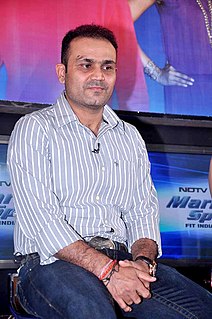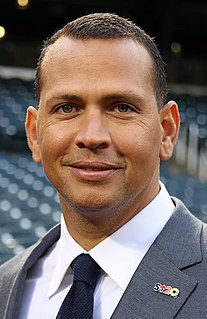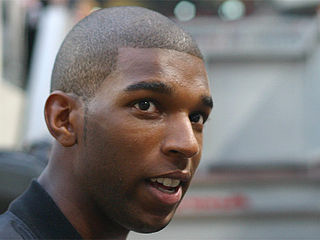A Quote by Virender Sehwag
I love to score runs rather than defending or leaving the ball. That is an important aspect of my batting: I don't want to waste balls in any form of the game.
Related Quotes
The offseason after the 2014 season, I worked with hitting coach Damon Mashore. I always had power in batting practice but couldn't take it into a game consistently. We made a little adjustment with my hands, lowered them a bit to get a consistent path to the ball, a natural uppercut to elevate the ball and backspin some balls.
I want more runs in baseball itself. When you were raised on a sandlot, where the scores ran twenty-three to sixty-one, you yearn for something more than a five to two score. You know as well as I do that the excitement, temperature and decibels of any big game today rise instantly when there is someone on base. It reaches ecstasy when somebody makes a run.



































